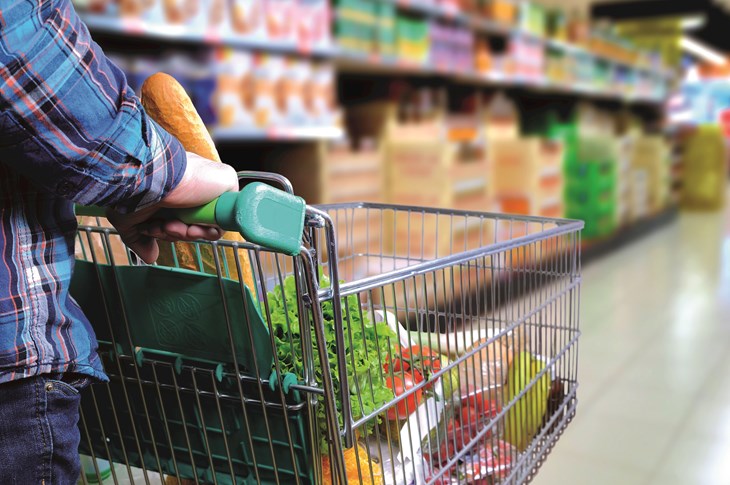
Yesterday (4th January), at the Oxford Farming Conference, the Environment Secretary, Steve Barclay MP, announced the Government would rapidly consult on new food labelling proposals for meat and dairy products. Disappointingly however, this seems unlikely to include information on the animal welfare standards of meat and dairy items produced within the UK.
In his speech at the conference, the Secretary of State detailed how the proposed labels would highlight imports that do not meet UK animal welfare standards. However, this falls short of the recently abandoned proposal to introduce mandatory method of production labelling and would potentially still not give consumers all the information they need to make more informed choices when purchasing animal products.
The announcement also suggested the introduction of a ‘buy British button’ on supermarket websites. Whilst this may address sub-standard imports, it will do nothing to help direct consumers to higher welfare products, whether British or otherwise, that go above the legal minimum standard.
Method of production labelling needed
The Government had promised to consult on mandatory animal welfare labelling in 2023, following a ‘Call for Evidence’ in 2021.
“Whilst it’s welcome to propose consistent and mandatory labelling across all meat and dairy products, unfortunately these proposals appear to be a poor relation to what was originally on the table – labelling that would include animal welfare information,” said Anthony Field, Head of our UK office. “It is imperative that meat and dairy labels not only include the country of origin, but also the method of production.”
UK - Leading the way?
Despite the claims made by the Secretary of State in his speech, British meat and dairy products do not always meet, or exceed, world-leading animal welfare and environmental standards. For example, one in five UK hens are kept in enriched cages, yet our European counterparts in Austria and Luxembourg already have a ban in force, whilst Germany, Czech Republic and Slovakia will follow in 2025, 2027 and 2030. France, meanwhile, have banned the installation of any new cages.
In addition, over 50% of UK sows are confined to farrowing crates, in which they cannot even turn around, for nine or ten weeks of the year, sometimes longer, yet these crates have been banned for several years in Switzerland, Norway and Sweden. Even Germany – one of the two biggest pig producers in Europe, will enforce a ban, restricting the use of crates to five days after giving birth, in 2035 and Austria from 2033.
Create transparency
Anthony continued: “It’s time the Government stops tinkering around the edges of this issue and introduces clear, honest labelling on meat and dairy products.
“We need to see the Government taking meaningful action and put an end to murky labelling confusion and create transparency, if the UK wants to truly be seen as world leaders in animal welfare and environmental standards.”
Find out more about our Honest Labelling campaign.
